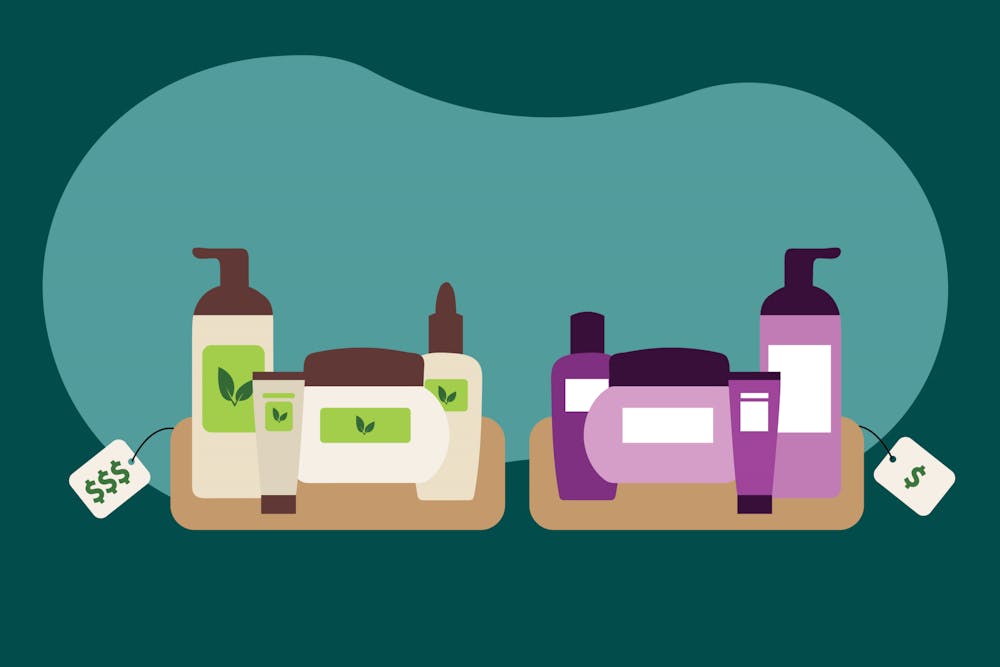Abigail Kreuser said she makes an effort to buy the greener version of products she needs, even if they cost more.
“I always bought the wet brush that had the biodegradable plastic, but it kept breaking, so I got the regular wet brush,” said Kreuser, a first-year biology Ph.D student.
Many students on campus said they, like Kreuser, want to support the environment through their shopping habits. However, the majority find higher prices and a general distrust of companies prevent them from doing this.
"I always try to see if there is an option available that's more green and more sustainable," said Tara Barlowe, a first-year international business and marketing student.
Barlowe said this is a priority for her because she trusts and appreciates natural, chemical-free products. She even is willing to spend the extra dollar if it helps the environment, as long as it's not excessive.
Most students, however, are not like Barlowe and Kreuser. They say price matters because they are on a limited budget, a common issue for college students. Still, this reality can make some feel guilty for buying affordable, non-sustainable alternatives.
"I would like to say I shop sustainable, but no, because it's more expensive, and I am so broke right now, so we are going with what I can afford," said Megan Laurendeau, a fourth-year biology major. "Hopefully in the future, maybe yes."
She smiled when she explained how her friend, an environmental student, hassles her for shopping at non-sustainable stores like Shein, a foreign, online company that sells cheap clothes.
"She literally is down our throats all the time about it. Any time one of us sends our Shein carts or our Zara cart, she's like 'you're ruining the world, like, do you want grandkids?'," Laurendeau said.
Many people, like Laurendeau, have an "intention-action" gap, which happens when people say they intend to take a certain action, like shopping sustainably, but don’t, according to the Harvard Business Review.
Most agree that making prices of green alternatives comparable to their non-green counterparts is the first step in closing this gap.
"Once we get to the point as a society where they can be price competitive because whether it's in the grocery store you know it's, like, organic or, like, a biodegradable packaging, it's just going to cost more to make, manufacture and ultimately sell," said Clark Andre, a fourth-year finance and risk management student.
Andre also said advertising can make sustainable products more attractive to consumers — even though prices can be an obstacle — but there still needs to be a way to sustainably source and manufacture the product affordably.
"I think it would be good to have more options that (are sustainable) but they need to make it more affordable and there needs to be some kind of way to actually know that those brands are doing what they say they are," said Jordan Marcengill, a fourth-year biology student.
Students had a general distrust of companies that market their products as sustainable. They said that because companies know consumers want to buy environmentally friendly products, those companies may be tempted to say their products are sustainable even when they are not.
To further close the “intention-action gap,” many students said there must be a set standard for when companies can claim a product is eco-friendly.
For example, the Food and Drug Administration (FDA) has no official definition for the term "organic," but the U.S. Department of Agriculture (USDA) regulates the use of "organic" on packaging through the National Organic Program (NOP).
Students said they often don’t know what to look for to ensure they're buying environmentally beneficial packaging or products.
"Are they truly telling the truth? Because you don't really know. And then, it could say it's sustainable but then that could be the worst thing for you," said Kameron Baca, a second-year film and media major.
Others are more trusting of companies marketing green products.
Selecting products based on "what's on the bottle, it makes me say 'OK this one is going to be better for me,'" said Hannah Hopper, a second-year physical education student.
Overall, students said they find it difficult to make the right choice, and must do research before they buy.
“I think it’s complicated, even though I'm picking the green one. I don't know if it's really, like, sustainable or if they are treating the earth or its workers better than the other products,” said Kreuser, the Ph.D student. “I have to do that research myself, which is hard.”

